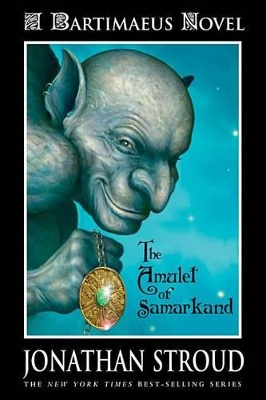Reviewed by Amanda on
Nathaniel is somewhat of an annoying brat, and as Bartimaeus has said, too clever for his own good. In this world, magicians don’t actually have their own power, they must summon djinni (or, as Nathaniel’s master calls them: demons) to do their bidding. It is a master-slave type relationship. Nathaniel may be strong for his age and shows a lot of potential, but there are certain aspects of being a magician that he clearly lacks the knowledge of and maturity to deal with these things. Bartimaeus is a wizened (and honorable, as he says) djinni, so we mostly learn the important things from him.
Although Jonathan Stroud’s writing style and word choice is quite nice, it somehow distanced from the story rather than sucking me in. I kept noticing the nice flow and almost flowery or poetic language, but in some ways it reminded me of reading my textbooks – too many big words and your mind starts straying. My mind didn’t actually stray, but I wasn’t able to connect to the story as much as I would have liked, and it was easier to set the book down and come back to it at a later time.
See my review in its entirety here.
Reading updates
- Started reading
- 22 April, 2011: Finished reading
- 22 April, 2011: Reviewed
